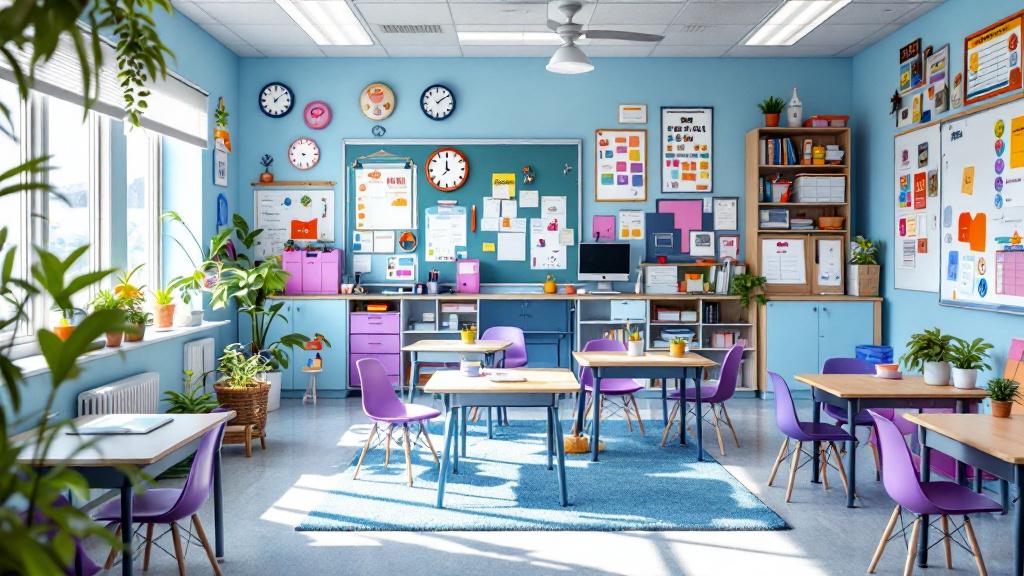Understanding ABA and Its Impact on Social Development
Applied Behavior Analysis (ABA) is a scientifically supported, individualized therapeutic approach widely recognized for its effectiveness in promoting social awareness and skills among children with autism spectrum disorder (ASD). By focusing on behavior modification through evidence-based techniques, ABA helps children develop vital social abilities such as communication, understanding social cues, and forming meaningful relationships. This article explores how ABA supports social development, the strategies involved, and the future outlook for improving social awareness in children with autism.
Foundations of ABA and Personalization of Interventions

How does ABA help children with autism develop communication and social skills?
ABA, or Applied Behavior Analysis, is a scientific approach that focuses on understanding and changing behavior through proven techniques. It helps children with autism develop social skills by using methods like positive reinforcement, modeling, and shaping. These strategies break down complex social behaviors—such as initiating conversations, understanding emotions, and interpreting body language—into smaller steps.
Therapists design personalized programs based on thorough assessments of each child's needs. These assessments identify specific skill deficits and areas for growth. The programs then set measurable goals, often involving visual supports, role-playing, and practice in controlled environments. Children practice social behaviors repeatedly, receive positive feedback or rewards, and engage in guided activities to strengthen their skills.
Progress is carefully monitored through ongoing assessments, ensuring that interventions are adjusted to maximize learning. ABA also emphasizes teaching social skills in natural settings like home, school, or community environments, which promotes generalization—applying learned skills across various social situations.
Overall, ABA fosters meaningful interactions and emotional understanding, improving children’s ability to connect, communicate, and participate actively in social life. The individualized approach ensures that each child’s unique strengths and challenges are addressed, making ABA a powerful tool in enhancing social capabilities for children with autism.
Key Social Skills Addressed by ABA
ABA therapy focuses on teaching children with autism a wide range of social skills to improve their ability to interact effectively with others. These skills include foundational behaviors like imitation, listening, and recognizing personal space, as well as more complex abilities such as initiating and maintaining conversations.
One primary goal is to help children understand and respond appropriately to social cues. This includes recognizing facial expressions, body language, and tone of voice, which are vital components of social communication. Through techniques like video modeling, social stories, and role-playing, children learn to identify and interpret these non-verbal signals.
Basic social behaviors such as turn-taking, sharing, greetings, and farewells are also emphasized. Group social skills training offers children opportunities to practice these behaviors in supportive settings, promoting peer interactions and collaboration.
For more advanced social competencies, ABA programs teach perspective-taking and emotional regulation. Children are guided through scenarios that help them understand others' feelings and viewpoints, which is essential for developing empathy and meaningful friendships.
Strategies used in ABA to teach these skills include breaking down complex interactions into small, manageable steps, and reinforcing each successful attempt with praise or tangible rewards. Video modeling, role-playing, and naturalistic teaching approaches support children in applying what they learn in real-world settings.
Overall, ABA aims to develop social skills that children can generalize across different environments like home, school, and community, leading to improved social confidence and better relationships.
Techniques and Strategies in ABA for Social Skills Enhancement
 ABA therapy uses a variety of effective methods and strategies to help children with autism develop essential social skills.
ABA therapy uses a variety of effective methods and strategies to help children with autism develop essential social skills.
One fundamental approach involves structured methods like Discrete Trial Training (DTT) and Natural Environment Teaching (NET). DTT breaks down social skills into small steps, teaching each behavior systematically through repeated practice. For example, children learn to make eye contact or initiate greetings in controlled, manageable lessons. NET focuses on embedding learning within everyday routines and interactions, encouraging children to apply skills in real-life settings.
Social stories and video modeling are visual tools that depict appropriate social behaviors, helping children understand social cues, norms, and expectations. Role-playing exercises further support skill development by providing safe environments where children can practice social responses, recognize emotions, and improve emotional regulation.
Behavioral Skills Training (BST) is another key strategy. This involves explaining the importance of a social skill, demonstrating it through modeling, having the child practice the skill, and then providing feedback for improvement. This step-by-step process ensures that children receive clear instruction and reinforcement.
Additionally, therapists utilize visual supports such as schedules and visual cues to enhance understanding. Breaking down complex skills into smaller, achievable parts makes learning less overwhelming and more effective. Incorporating natural environment learning allows children to generalize skills across various settings, promoting consistency.
Peer-mediated interventions also play a crucial role. Typically developing peers act as models, demonstrating social behaviors like sharing, turn-taking, and initiating conversations. Structured group activities provide opportunities for children to practice these skills collaboratively in a supportive environment.
Together, these strategies foster meaningful improvements in social interactions, helping children with autism engage more confidently with peers, understand social cues, and participate actively in community life.
Research and Evidence Supporting ABA’s Effectiveness in Social Development
 Numerous scientific studies have demonstrated the positive impact of Applied Behavior Analysis (ABA) on the social skills of children with autism. Research consistently shows that intensive ABA therapy leads to meaningful improvements in areas such as social communication, peer interactions, and overall social engagement.
Numerous scientific studies have demonstrated the positive impact of Applied Behavior Analysis (ABA) on the social skills of children with autism. Research consistently shows that intensive ABA therapy leads to meaningful improvements in areas such as social communication, peer interactions, and overall social engagement.
ABA’s structured and systematic approach focuses on breaking down complex social behaviors into smaller, manageable steps. Techniques like reinforcement, modeling, role-playing, and video modeling help children learn to interpret social cues, respond appropriately, and develop conversational skills. These methods foster better understanding of body language, facial expressions, and social rules, which are crucial for meaningful social participation.
Long-term benefits of ABA include increased ability to make eye contact, share interests, initiate and maintain conversations, and understand others’ perspectives. Evidence-based studies support that children who undergo early, consistent ABA therapy tend to exhibit greater social independence and improved peer relationships. These improvements are sustained over time, contributing to enhanced emotional well-being and adaptive functioning.
Here’s a summary of core observed outcomes:
| Outcome Area | Evidence | Description |
|---|---|---|
| Social Communication | Strong | Enhanced verbal and nonverbal interaction skills; |
| Peer Interactions | Consistent | Betterability to initiate and respond in group settings; |
| Emotional Understanding | Supported | Increased recognition and regulation of emotions; |
| Generalization | Documented | Skills transferred across environments like home and school; |
| Long-term Impact | Supported | Sustained improvements contributing to greater social integration. |
In conclusion, ABA remains a scientifically supported method that significantly improves social functioning in children with autism. Its emphasis on individual assessment, measurable goals, and evidence-based techniques ensures that children develop essential social skills, helping them lead more connected and independent lives.
Facilitating Generalization and Community Integration
How can parents and caregivers support the development of social skills and awareness in children with autism?
Parents and caregivers play a vital role in supporting their child's social development. They can do this by providing direct and clear instructions, demonstrating appropriate social behaviors such as turn-taking, sharing, and eye contact. By modeling these behaviors routinely, caregivers set consistent examples that children can imitate, reinforcing correct social responses.
Utilizing visual supports like social stories, emotion cards, and scripted conversations helps children recognize social cues, understand social rules, and anticipate social interactions. These visual tools demystify complex social concepts and make them accessible for children with autism.
Creating structured social opportunities is another effective strategy. Small group activities, peer pairing, and supervised playdates foster safe spaces for children to practice interaction skills and develop friendships naturally. These environments encourage children to apply learned skills in real-world settings, promoting social confidence.
Reinforcement strategies are essential for motivating ongoing improvement. Specific praise and personalized rewards reinforce successful social behaviors, encouraging children to repeat these actions. Consistency in reinforcement across home, school, and community settings helps solidify skills and supports their generalization.
Professional guidance from speech and occupational therapists complements parental efforts, providing targeted support tailored to each child's unique needs. Regular assessments and collaborative planning ensure that social skills are being effectively developed.
Finally, fostering patience and creating inclusive environments promote a positive developmental trajectory. By encouraging involvement in various community settings, children with autism can gain broader social experiences, leading to improved awareness, acceptance, and social functioning over time.
Strategies for ensuring long-term maintenance of skills
Sustaining social skills requires ongoing reinforcement across settings. Natural Environment Teaching (NET) integrates skills into daily routines, ensuring continuous practice. Repetition and consistency in reinforcing behaviors help embed skills into the child's repertoire, making them more likely to be retained. Ongoing collaboration among parents, educators, and therapists guarantees that interventions remain aligned with the child's evolving needs, supporting continued growth and successful community integration.
Addressing Challenges and Ensuring Ethical Practice

What challenges and considerations should be kept in mind when applying ABA to enhance social skills in children with autism?
Applying ABA therapy to improve social skills in children with autism requires careful planning and consideration of several factors. One of the main challenges is tailoring interventions to each child's unique needs. This involves conducting comprehensive assessments to identify specific social deficits and understanding the child's interests and motivations. Individualized programs help ensure that teaching strategies are relevant and effective.
Another important aspect is promoting the generalization of skills across various settings. Children might learn a social behavior in therapy but struggle to apply it elsewhere like at home, school, or social outings. To address this, therapists, parents, and teachers must work together, using consistent reinforcement and support in different environments.
Structured activities such as role-playing, social stories, and video modeling are particularly useful in teaching complex social skills. Role-playing lets children practice social scenarios in a safe, controlled way, while social stories help them understand social norms and expectations. Video modeling provides visual examples of appropriate behaviors, making it easier for children to imitate and understand social cues.
Implementing ABA with patience and consistency is critical. Children often require repeated practice and positive reinforcement to acquire new skills effectively. Ethical sensitivity — respecting the child's dignity and promoting positive experiences — must remain central to all interventions. Data collection, ongoing assessment, and collaboration among multidisciplinary teams ensure that programs remain responsive and adapted over time.
In summary, addressing these challenges involves customizing interventions, fostering skill transfer across environments, utilizing engaging structured activities, and maintaining a compassionate, systematic approach. This comprehensive strategy supports children with autism in developing meaningful and lasting social skills.
Future Directions and Innovations in ABA for Social Development

What are the future directions and advancements in ABA for social development in children with autism?
The field of Applied Behavior Analysis (ABA) continues to evolve, incorporating new strategies and technologies to enhance social development for children with autism.
One promising area is the development of personalized interventions. These tailored programs are designed based on comprehensive assessments of each child's unique strengths and challenges, ensuring that therapy aligns closely with individual needs. By customizing goals and methods, therapists hope to maximize engagement and progress.
Advancements in technology are also playing a significant role. The use of virtual reality (VR) environments is emerging as an innovative approach to simulate real-world social situations in a controlled, safe space. VR allows children to practice social skills like turn-taking, eye contact, and perspective-taking, making learning more immersive and engaging.
Peer-mediated strategies and inclusive approaches are gaining prominence. These involve training typically developing peers to model appropriate social behaviors, facilitating natural interactions, and creating more inclusive environments. Such strategies not only promote generalization of skills but also foster friendships and social acceptance.
Long-term outcome studies are vital for understanding the lasting effects of ABA interventions. Researchers are increasingly focused on assessing the sustainability of social skills gains over time, which informs best practices and helps refine therapies to produce enduring benefits.
Cultural responsiveness in ABA is another important focus. Modern practices strive to respect and incorporate diverse cultural backgrounds, ensuring interventions are culturally sensitive and relevant. This approach helps promote equitable access to effective therapies for children from various communities.
Furthermore, naturalistic teaching methods and more engaging, contextually relevant tools are being integrated into ABA. These include social stories, role-playing, and video modeling, all adapted to fit everyday environments, making skill acquisition more practical and meaningful.
In summary, future innovations aim to personalize therapy, leverage cutting-edge technology, promote inclusivity, and ensure culturally sensitive practices. These advancements will help optimize ABA's effectiveness in fostering social awareness, engagement, and lifelong social competence for children with autism.
Empowering Children and Supporting Growth
ABA remains a cornerstone in the development of social awareness and skills among children with autism. Its structured, evidence-based methods facilitate meaningful improvements in social interactions, emotional understanding, and adaptive behaviors. Engaging parents, caregivers, and professionals in consistent and culturally sensitive practices, while embracing innovative future strategies, will continue to expand the positive impact of ABA. With ongoing research and dedicated implementation, children with autism can achieve greater social independence, build lasting relationships, and thrive within their communities.
References
- Developing Social Skills Through ABA Therapy for Autism
- Applied Behavior Analysis (ABA) | Autism Speaks
- Using ABA to Improve Social Skills in Children with Autism
- How ABA Therapy Helps Improve Social Skills in Children
- Autism and Social Skills Development
- How to Teach Social Skills Using ABA Principles
- How ABA Therapy Enhances Social Skills in Children with ASD
- Working With ABA And Social Skills Groups For Autism
- Harnessing ABA Therapy for Social Skills Development in Autism





































































































